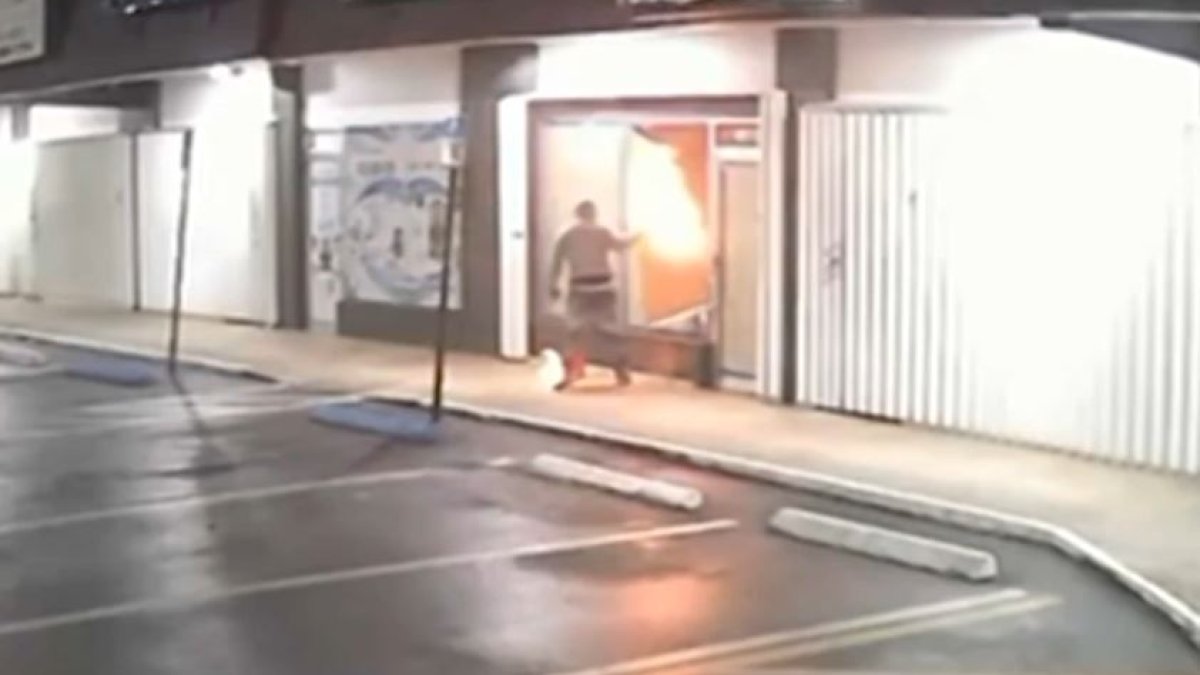Food truck rallies are all the rage, serving up meals on wheels at events and street corners around South Florida. Like traditional restaurants, they’re required to have a state license and undergo two unannounced inspections a year.
“In our tool box to find them we have temporary events, we have recurring events, we have social media,” said regulatory consultant Cindy Ross.
The Department of Business and Professional Regulation denied NBC 6’s requests to follow or interview inspectors.
Inspection reports from different food trucks in Miami-Dade County reveal inspectors often find multiple critical violations like no hot or cold water at the employee hand wash sink, cheese and chicken not held at proper temperature, and potentially hazardous food thawed at room temperature.
Taqueria Los Dos Amigos met inspection standards with 11 critical violations.
A worker, who did not identify himself, would not allow NBC 6 to go inside the food truck.
“The truck is clean, the inspectors have come out and checked it, there’s no problem,” he said.
Local
“For the most part operators try really, really hard to play by the rules and to do the right thing and they don’t want to make people sick,” said Ross.
While these mobile restaurants do a lot of moving around, they are required by the state to have a License Location Address. For more than 150 mobile food dispensing vehicles, that address is a very small warehouse space in Miami. There, Salchipan serves as a state-approved commissary where food trucks can get drinkable water and dispose of dirty water and grease. They are required to report to their commissary once a week. After we inquired about this location with state regulators they suddenly announced a change.
“The commissary is no longer required for self-sufficient mobile units. They just need an approved place to get fresh, clean water and a proper place to dispose of their waste water, neither of which can be a private residence,” said Ross.
A private residence in Miami is technically the birthplace of a popular food truck: Grill Master Café.
“We would take the truck, bring it home after 4, 5 o’clock when the code inspectors were not around, and we would start building it in the front of our house. Our neighbors were: ‘You guys are crazy, you don’t know what you’re doing,” said co-owner Maria Delgado.
The original truck was sold and her husband has since built a new truck, where food was cooked and served without a license for months.
“Somehow it just fell through the cracks of doing all the transfers and everything for the new truck,” Delgado said.
Meanwhile, the unlicensed truck was also towing an open trailer to events. It was used to serve sweets until the state shut it down in August.
“We were working with the trailer for a good six months, and they would inspect the Grill Master, they saw the trailer. They never said anything until the last minute when I guess somebody gave a complaint,” said Delgado.
The Delgados have a warehouse in Hialeah and have gotten into the business of turning old delivery trucks into mobile kitchens.
Food Cart USA is a high-end food truck manufacturer in Southwest Miami-Dade and California. They have built more than 200 and prices range from $55,000 to $180,000.
“I like to call it the gourmet food truck. This isn’t the typical roach coach that’s being sent out in the street,” said Food Cart USA co-owner Crystal Ramirez.
Her mother, who started the business, has concerns about inexperienced builders breaking into the industry by offering better deals.
“We know there are people building trucks probably in their little backyard, that they’re not even licensed,” said Tanya Ramirez.
A special license is needed to install the gas lines connected to the propane tanks that fuel the kitchens.
More Local Stories
“I’m afraid that for gosh sakes something happens out of a food truck explosion on a propane tank or anything like that, that’s my concern. I’m afraid these people who do not know what they’re doing, something crazy like that could happen,” said Ramirez.
Grill Master Chef owners say they do not have the license to make the gas line connections on the trucks they are building. They say they contract that work out to someone that is licensed.
One way to know if you’re a food truck is licensed to serve food is to look for the number on the truck. The state requires operators to post it.
Inspection reports are available on the DBPR website.
So far this year, the Miami-Dade Health Department says only one person has reported getting sick from eating at a food truck. The number to call to make a report is 305-470-5660.



